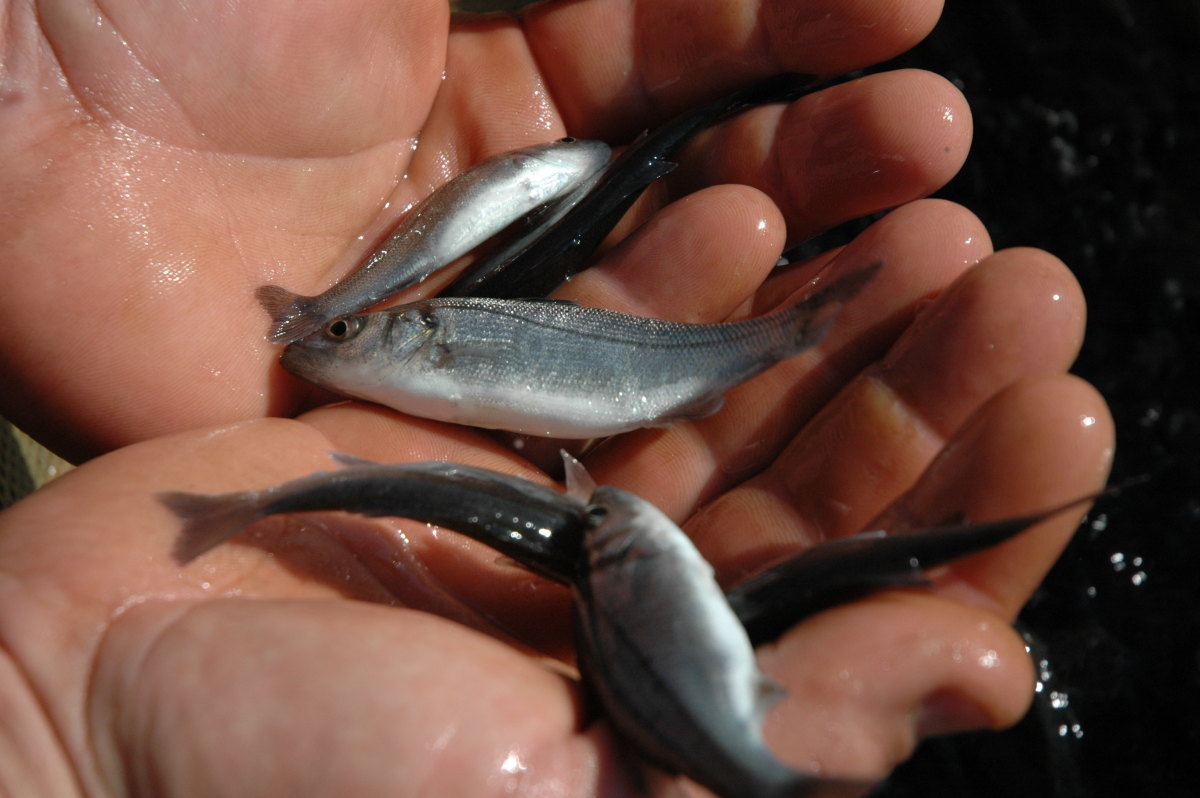5 Resources for Selecting Sustainable Fish at the Grocery Store

Maybe you’ve heard: our oceans are badly overfished. The last major source of wild food on our plates is in a state of collapse. According to the best estimates, 75% of global fish stocks have been fished at or beyond sustainable levels, leaving ocean ecosystems in a damaged state, and a major protein source for many cultures at risk.
Aquaculture, the raising of aquatic species for food, is exploding in growth on the global food market. About 50% of the fish in our food systems are now farm raised. So that’s good right? That takes the pressure off the dwindling wild stocks? Not always unfortunately. Many farmed fish are actually fed with wild caught stock, putting further pressure on threatened species. And off-shore “open net” aquaculture pens pose environmental problems; fish can escape and become an invasive species issue for example. These farmed fish are also often fed vast amounts of antibiotics and chemicals to make them grow faster and adapt to the unnatural crowded conditions. These additives spread into the ocean affecting wild fish, and contaminate our bodies when we eat them. Generally the most sustainable form of aquaculture is recirculating closed loop systems, in which the water is recycled, the fish waste used as fertilizer, and the whole system operates inland away from the open ocean. However, you won’t find on any fish labels the exact method of farming practiced.
So as a concerned consumer, what do you choose: wild or farmed? Well, it’s complicated... some fish it’s better to buy wild because they are harvested using acceptable techniques, but for others the population stocks may simply be too depleted and thus it’s better to buy farmed.
With so much to think about and the rules changing depending on the type of fish and where you live, several environmental organizations have created guides that help you shop smart at the grocery store. See below five of the most popular ones made by different environmental groups (click on the name):
1.) Greenpeace
As well as creating a “Red List” of fish definitely to avoid eating, Greenpeace has compiled a
- “Supermarket Scorecard.” A national rating of how different supermarkets fare in providing sustainable fish options.
- “Search your supermarket.” A quick and easy online tool for searching the most fish-friendly supermarkets in your state.
2) Monterey Bay Aquarium Seafood Watch
Choose your region of the United States and download the “pocket guide” or iPhone/Android app. The shopping guide contains three lists of fish: Best, Good Alternatives, and fish to Avoid.
3) Environmental Defense Fund Seafood Selector
Also a pocket guide, EDF has separated fish into Eco-Best, Eco-Ok, and Eco-Worst, based on whether it was wild caught or farmed, and where it came from. They also put green hearts next to the fish with the most health benefits (high in omega 3s), and red hearts for those that typically are contaminated with pollutants (like mercury).
4) Food and Water Watch Seafood Buying Guide
This fact sheet highlights seven questions to ask your grocer before buying fish, and provides more information on the significance of different seafood labels, such as organic, and MSC (Marine Stewardship Council).
5) Blue Ocean Institute Guide to Ocean Friendly Seafood
Very in-depth and more scientific, on this website you can search for your “favorite seafood” and find a profile on the ecological pros or cons of this species. That includes how the species is usually raised or caught, what it is fed if farmed, and its risk to other species.








